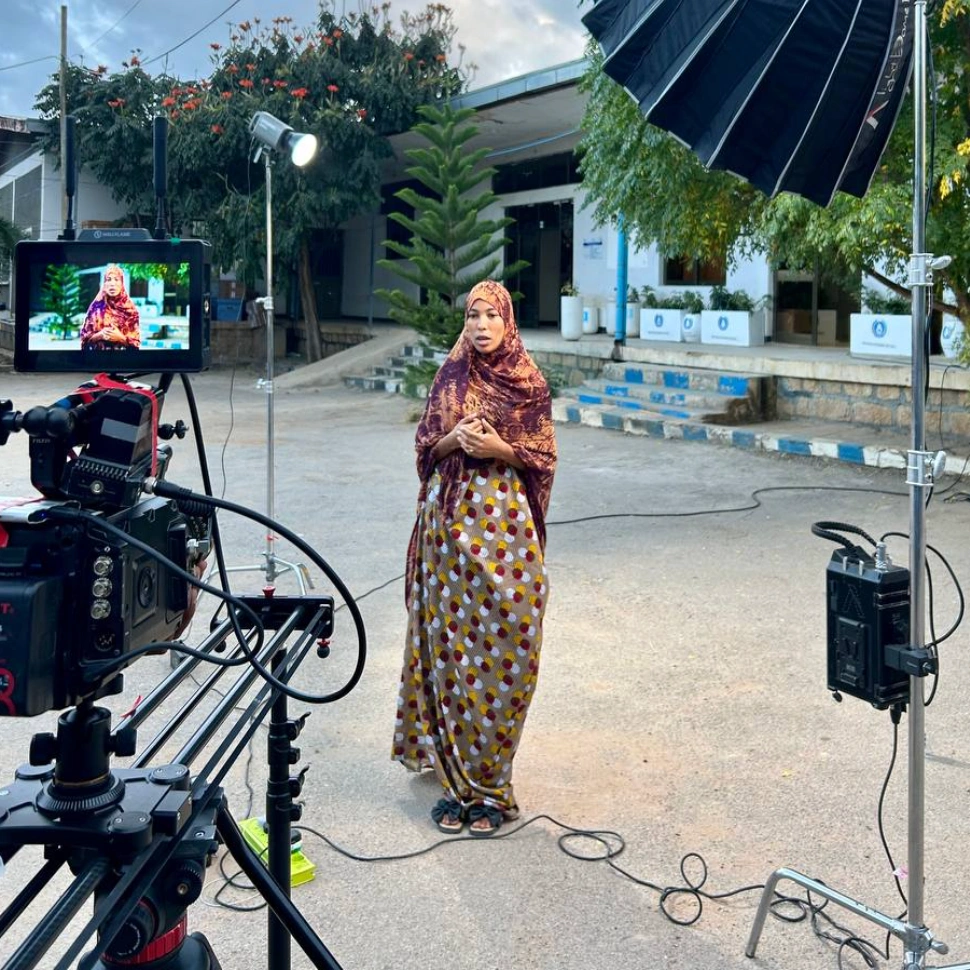
Adversity shouldn’t stop delivery. It should show us how to get better.
In March 2024, Ethiopia launched its first single-dose HPV vaccine campaign. This was a huge first step for preventing cervical cancer in the country. On paper, it was a success. More than a million girls were vaccinated. But behind the scenes, the team leading the rollout saw the reality. Caregivers were hesitant, and rumours about side effects were spreading. The Ministry of Health realised the issue wasn’t logistics. It was trust. So before the next campaign, they changed course. Instead of planning harder, they listened and acted. By November, over seven million girls were vaccinated. That wasn’t luck. It was learning.
This story shows how governments in Africa and Asia can learn from success. They can use these lessons to provide better services for their citizens. In the second-to-last part of our Adversity as a Driver series, we look at how learning-led delivery helps governments improve. It allows them to reflect and adapt as they work. It’s not an add-on. It’s a mindset. It transforms last-mile challenges into a place for leadership, learning, and growth.
Lesson 1: Learn Through Doing, Not Over-Planning
When citizens’ lives are at stake, the urge to plan every detail up front is understandable. But in reality, the only way to tackle complex challenges is to learn, adapt, and overcome. And learning comes from taking action.
That’s exactly what Ethiopia did. After their first HPV campaign in March 2024, the Ministry of Health quickly realised demand was falling short. Despite vaccinating over a million girls, uptake was limited by widespread fear and misinformation. So ahead of their second campaign in November, they encouraged trusted voices to speak out, including teachers, religious leaders, women’s groups, and political figures. They did this in their communities, on TV, and across social media. Messaging was clearer, outreach was stronger, and confidence grew. Seven million girls received their first HPV vaccinations as a result.
Upfront planning set the stage, but quick learning in the first campaign taught the Ministry how to improve.
A communications officer from the Somali Women’s Affairs Bureau recording a television advert for the HPV vaccination campaign.
Lesson 2: Mid-level Managers Are Key
Mid-level managers are responsible for several districts. They oversee daily operations and turn goals into results. They hold delivery together. But they often get overlooked. Countries usually focus on frontline workers, like vaccinators, or leaders at the national level.
Learning-led delivery takes off when mid-level managers are properly supported. With our work in Pakistan, we’ve seen how regular coaching and focused routines can transform district-level leadership.
From 2014 to 2017 in Punjab, Pakistan, local leaders got monthly data packs. These packs pointed out key areas for improvement. The leaders started their own performance reviews. They identified issues and made quick changes. Some became champions of the system, driving better performance in other districts by sharing what worked. Their efforts led to major health gains. By 2017, nearly one million more children each year were fully vaccinated against deadly diseases.
Learning-led delivery puts these leaders at the centre. It recognises their influence, invests in their growth, and turns them into engines of learning across the system.
Lesson 3: Show Teams You’re on Their Side
In many countries, our people work directly with government teams—not as external auditors, but as embedded partners. Building trust is critical. Sometimes our reviews show that health facilities can improve in hundreds of ways. Listing all these ways to improve can overwhelm teams. This might lead to ignored feedback and damage our relationship. Instead, we focus on a few key areas where we can make improvements and see quick progress. Only then will they welcome learning and make it part of daily routines.
In Mozambique, we helped the government boost health facility monitoring from just over 500 to nearly 1,400 in a little over a year. We encouraged them to focus on a few key areas for improvement. These include motorbike functionality and fuel availability. With both metrics increasing by over 20% in a year, this was critical to creating lasting change.
Adopting a partner mindset—not an auditor’s—costs nothing. But it can lead to big improvements for citizens.
Lesson 4: Let Systems Learn from Their Own Success
Governments don’t need outsiders to explain what good looks like. Often, they’re succeeding quietly in many areas. The opportunity is to surface those bright spots and help others learn from them.
In one area of Sokoto, Nigeria, a health director led an impressive turnaround in results. They had seen the number of far-off communities visited by vaccinators more than double in just two months. We then helped him shape his story. He stood in front of a room of peers and explained what worked. He shared how his team used data to make quick improvements. By explaining the strategy in his own words to his peers, he inspired many of them to follow suit, and they began to show a turnaround in their own communities.
Highlighting positive local examples shares effective lessons. It also encourages healthy competition, which leads to broader improvements.
In Summary: What We’ve Learned
Learning-led delivery doesn’t need more funding. It requires more intention. When trust, coaching, and reflection join that intention, even strained systems can achieve great results.
We’ve learned:
-
Don’t wait for perfection. Start delivering, and the lessons will shape the way forward.
-
Change starts with mid-level managers—equip them, and everything else follows.
-
Prove you are a partner, not an inspector. To build trust, show teams you are on their side.
-
Peer-led advice beats external input. Spotlight positive local examples to spread learning and spark healthy competition for impact.
Because effective delivery isn’t about getting everything perfect on day one. It’s about getting better as you do it.
For more tips on driving change for citizens without big spending, read what Senior Project Manager for Pakistan, Shaheryar Manzar, says about using data to improve health outcomes in times of adversity.



